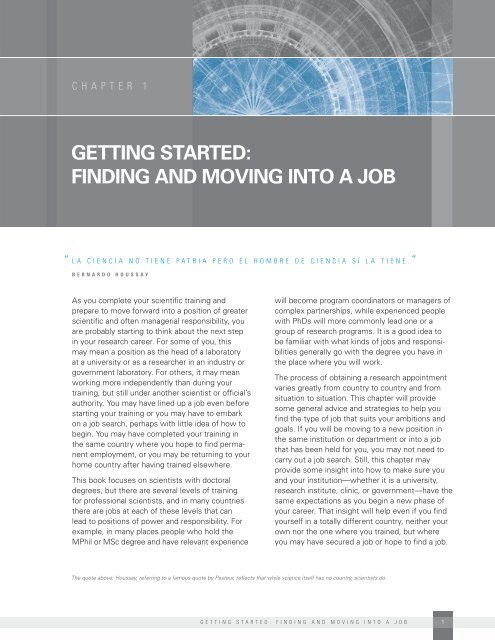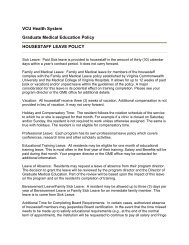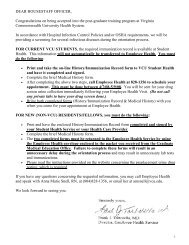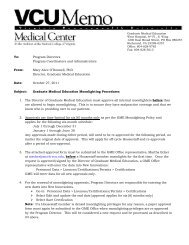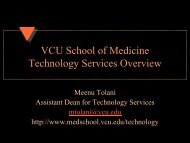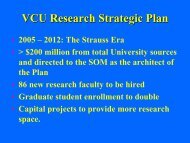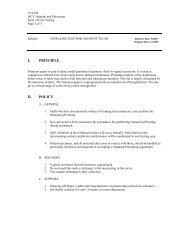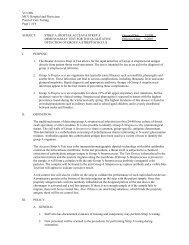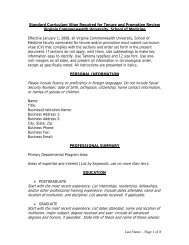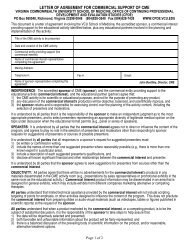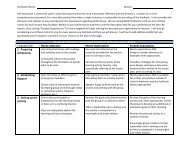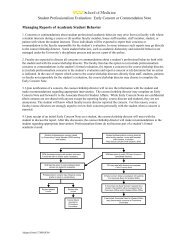Excellence Everywhere - National University of Ireland, Galway
Excellence Everywhere - National University of Ireland, Galway
Excellence Everywhere - National University of Ireland, Galway
- No tags were found...
You also want an ePaper? Increase the reach of your titles
YUMPU automatically turns print PDFs into web optimized ePapers that Google loves.
chapter 1GETTING STARTED:Finding and Moving into a Job“ L a ciencia no tiene patria pero el hombre de ciencia sí la tiene.”Bernardo HoussayAs you complete your scientific training andprepare to move forward into a position <strong>of</strong> greaterscientific and <strong>of</strong>ten managerial responsibility, youare probably starting to think about the next stepin your research career. For some <strong>of</strong> you, thismay mean a position as the head <strong>of</strong> a laboratoryat a university or as a researcher in an industry orgovernment laboratory. For others, it may meanworking more independently than during yourtraining, but still under another scientist or <strong>of</strong>ficial’sauthority. You may have lined up a job even beforestarting your training or you may have to embarkon a job search, perhaps with little idea <strong>of</strong> how tobegin. You may have completed your training inthe same country where you hope to find permanentemployment, or you may be returning to yourhome country after having trained elsewhere.This book focuses on scientists with doctoraldegrees, but there are several levels <strong>of</strong> trainingfor pr<strong>of</strong>essional scientists, and in many countriesthere are jobs at each <strong>of</strong> these levels that canlead to positions <strong>of</strong> power and responsibility. Forexample, in many places people who hold theMPhil or MSc degree and have relevant experiencewill become program coordinators or managers <strong>of</strong>complex partnerships, while experienced peoplewith PhDs will more commonly lead one or agroup <strong>of</strong> research programs. It is a good idea tobe familiar with what kinds <strong>of</strong> jobs and responsibilitiesgenerally go with the degree you have inthe place where you will work.The process <strong>of</strong> obtaining a research appointmentvaries greatly from country to country and fromsituation to situation. This chapter will providesome general advice and strategies to help youfind the type <strong>of</strong> job that suits your ambitions andgoals. If you will be moving to a new position inthe same institution or department or into a jobthat has been held for you, you may not need tocarry out a job search. Still, this chapter mayprovide some insight into how to make sure youand your institution—whether it is a university,research institute, clinic, or government—have thesame expectations as you begin a new phase <strong>of</strong>your career. That insight will help even if you findyourself in a totally different country, neither yourown nor the one where you trained, but whereyou may have secured a job or hope to find a job.The quote above: Houssay, referring to a famous quote by Pasteur, reflects that while science itself has no country, scientists do.GETTING STARTED: Finding and Moving into a Job 1


